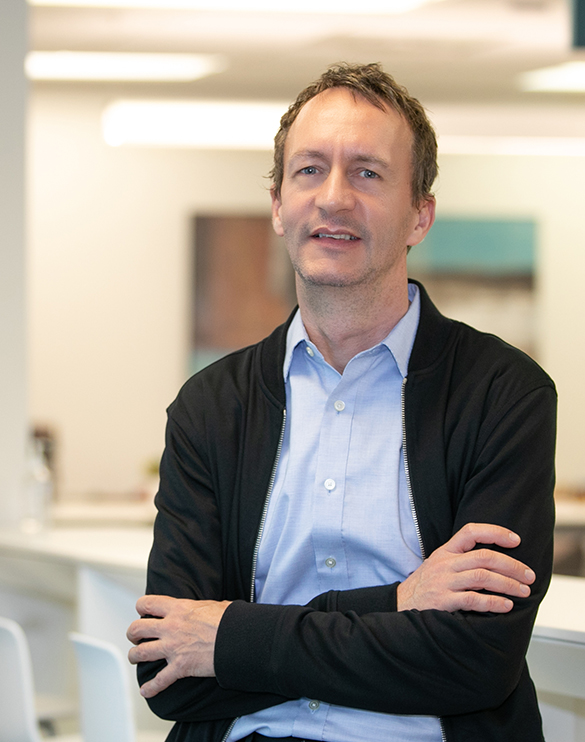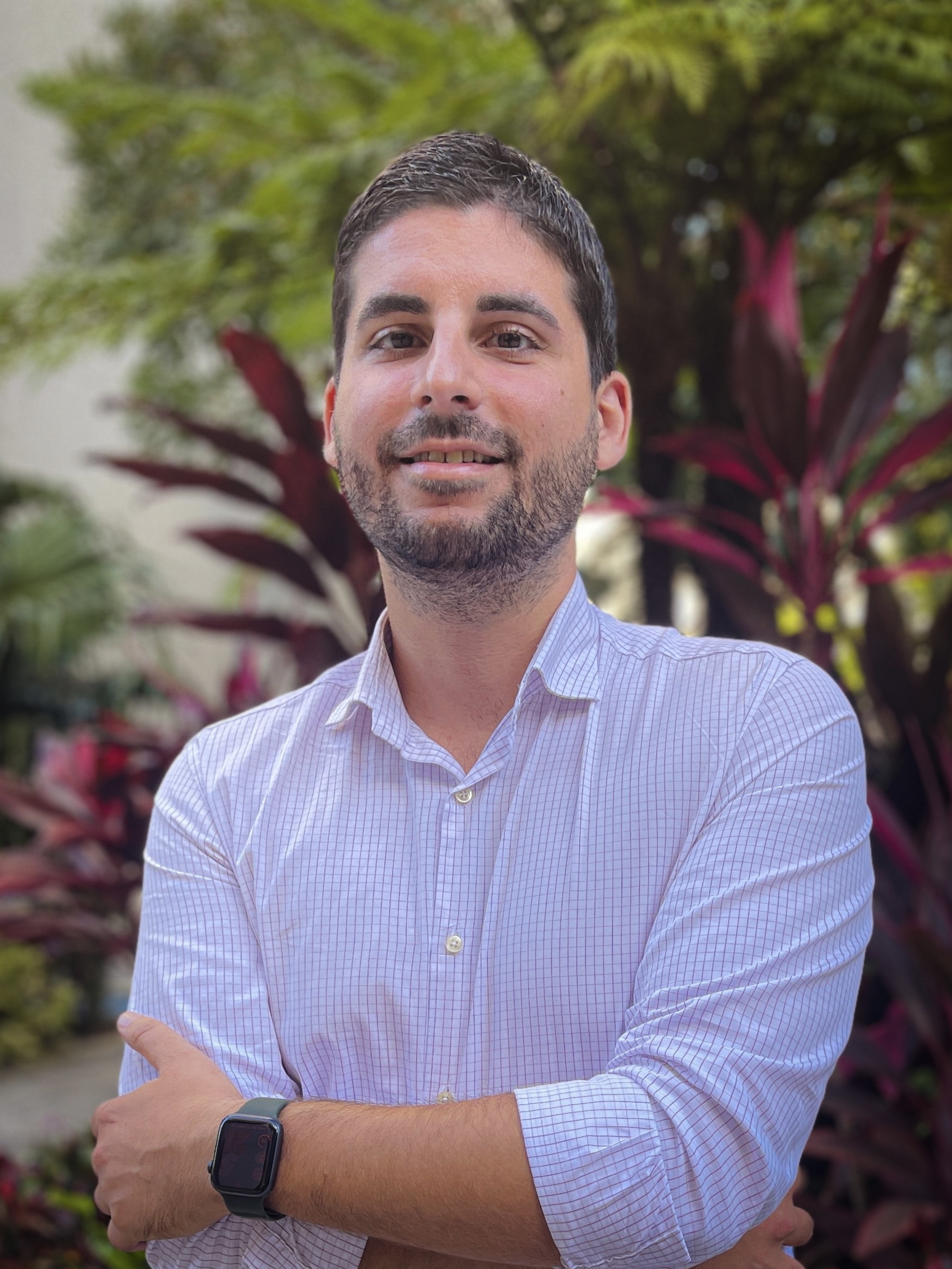Recognizing that sharing cancer data fosters discovery, innovation, and transparency, Sylvester Comprehensive Cancer Center, part of the University of Miami Miller School of Medicine, is taking a leadership role on many levels.
Florida Cancer Research (CARES)
 A new state grant will build on the foundation of the Sylvester Data Portal (SDP) to accelerate cancer research throughout Florida, and Sylvester’s membership in the American Association for Cancer Research’s Project GENIE (Project Genomics Evidence Neoplasia Information Exchange) will enhance national data collaboration. “We plan to establish the ‘Florida Cancer Research (CARES)’ computational research network to facilitate access and sharing of cancer-related data and bioinformatics resources,” said Stephan Schürer, Ph.D., Sylvester’s associate director of data science, professor of pharmacology at the Miller School, and director of digital drug discovery at UM’s Institute for Data Science and Computing (IDSC).
A new state grant will build on the foundation of the Sylvester Data Portal (SDP) to accelerate cancer research throughout Florida, and Sylvester’s membership in the American Association for Cancer Research’s Project GENIE (Project Genomics Evidence Neoplasia Information Exchange) will enhance national data collaboration. “We plan to establish the ‘Florida Cancer Research (CARES)’ computational research network to facilitate access and sharing of cancer-related data and bioinformatics resources,” said Stephan Schürer, Ph.D., Sylvester’s associate director of data science, professor of pharmacology at the Miller School, and director of digital drug discovery at UM’s Institute for Data Science and Computing (IDSC).
PAC3R
With the $1.5 million Bankhead-Coley Cancer Research Program Florida Infrastructure Grant, SDP will provide the foundation for the Florida “Platform for Accelerating Collaborative Computational Cancer Research” (PAC3R—pronounced “pacer”), which will connect the University of Miami with five other Florida research institutions in the CARES network.
The Sylvester-led initiative will include instituting an administrative and policy framework to govern data and metadata standards, data sharing, privacy, security, access to resources, reporting requirements, membership, outreach, and collaborative opportunities. The PAC3R technology platform will be a foundation for data-driven, collaborative cancer research.
“We will demonstrate the potential of PAC3R by integrating, coordinating, and sharing relevant cancer datasets and deploying bioinformatics tools across the Florida research network,” said Dr. Schürer. “We will also develop and share a collection of bioinformatics resources to mitigate existing health disparities in cancer treatment and outcomes.”
“Florida has the nation’s
second-highest cancer burden”
“Florida has the nation’s second-highest cancer burden, with more than 110,000 cases reported each year and significant health disparities in cancer treatments and outcomes,” said Dr. Schürer. “Extensive, well-organized, harmonized, and deeply annotated data is needed for cutting-edge cancer research strategies.”
Project GENIE
 The Project GENIE membership allows Sylvester to be a part of a registry that contains real-world cancer genomic sequencing and clinical outcomes data from de-identified cancer patients treated at Johns Hopkins, Children’s Hospital of Philadelphia, Stanford University, Dana-Farber Cancer Institute, University of California, University of Cambridge, Netherlands Cancer Institute, and other Project GENIE members.
The Project GENIE membership allows Sylvester to be a part of a registry that contains real-world cancer genomic sequencing and clinical outcomes data from de-identified cancer patients treated at Johns Hopkins, Children’s Hospital of Philadelphia, Stanford University, Dana-Farber Cancer Institute, University of California, University of Cambridge, Netherlands Cancer Institute, and other Project GENIE members.
Since 2015, Project GENIE has collected data from more than 160,000 genomic samples taken from 150,000 patients, representing 111 major cancers and 775 cancer subtypes.
“We were invited to participate in Project GENIE due to the strength of our research program, South Florida’s diverse patient population and our ability to deliver data using our next-generation SDP informatics platform,” said Dr. Schürer. Joining the consortium will help Sylvester researchers develop predictive models while contributing clinic-genomic data that will “enable impactful discoveries transcending race, ethnicity and geography,” said
Vasileios Stathias, Ph.D., assistant director of data science.
Launched in 2021, SDP is a cloud-based computational resource, supporting the management and analysis of multi-modal research and clinical data while protecting patient privacy and security in a HIPAA-compliant environment.
“Our long-term goal is to use
bioinformatics to help clinicians
make evidence-based decisions
for individual cancer patients.”
“We developed this platform to meet the data management needs of our research community, opening the door to new discoveries,” said Dr. Schürer. “Our long-term goal is to use bioinformatics to help clinicians make evidence-based decisions for individual cancer patients.”
Sylvester Data Portal
The SDP is a next-generation biomedical platform that enables Sylvester researchers to securely store, access, explore, and share their research and clinical data, added Dr. Stathias. It provides automated data processing pipelines to deliver harmonized, well-annotated, and analysis-ready datasets, along with intuitive UI-based tools that enable researchers to interactively visualize, explore and analyze their datasets.
“Multiple new functionalities are currently under development and will be made available in future releases of the portal, such as a dedicated software development kit to enable the rapid development and deployment of custom bioinformatics tools by SCCC members,” said Dr. Stathias.
Title: Next-Generation Biomedical Big Data Platform for Cancer Research and Collaboration Across Florida
Next-Generation Biomedical Big Data Platform for Cancer Research and Collaboration Across Florida
Project Number: 23B16
Name of PD/PI: Stephan Schürer, PhD
Source of Support: Bankhead-Coley
Total Award Amoun: $ 1,471,500
Dr. Schürer also received an NIH Grant with the goals of characterizing the signaling networks that mediate the biological functions of Pregnancy Up-regulated Non-ubiquitous Calmodulin Kinase (PNCK) in renal cell carcinoma, and improving and characterizing our current first-in-class small PNCK inhibitors to obtain suitable starting points for future development of advanced drug leads and a chemical probe for PNCK.
Title: Elucidating the Understudied Kinase PNCK as a Prospective Drug Target in Renal Cell Carcinoma
Project Number: R03TR004489
Name of PD/PI: Stephan Schürer, PhD
Source of Support: NIH
Total Award Amount: $153,499
Tags: Biomedical Big Data, Cancer, CARES Network, Clinical Data, Florida Cancer Research, multi-modal research, PAC3R, Project GENIE, Project Genomics Evidence Neoplasia Information Exchange, SDP, Stephan Schürer, Sylvester Comprehensive Cancer Center, Sylvester Data Portal, Vasileios Stathias



